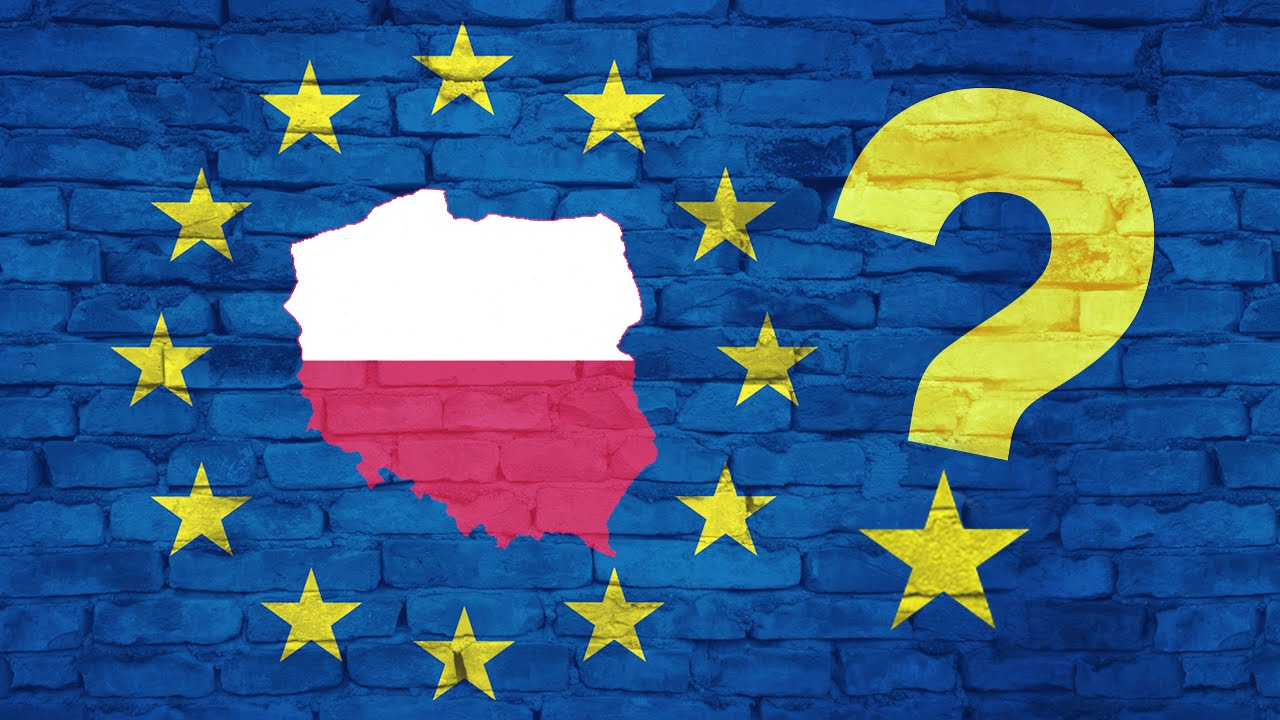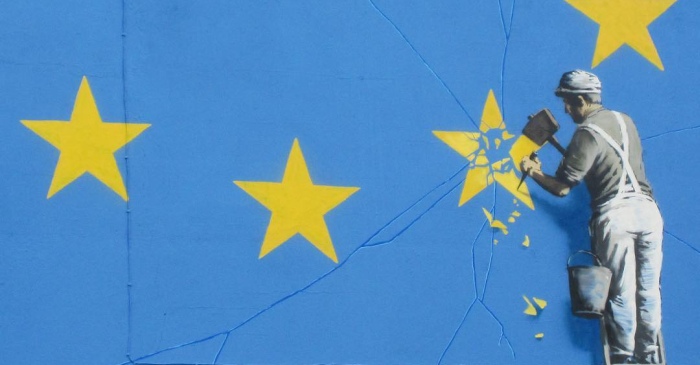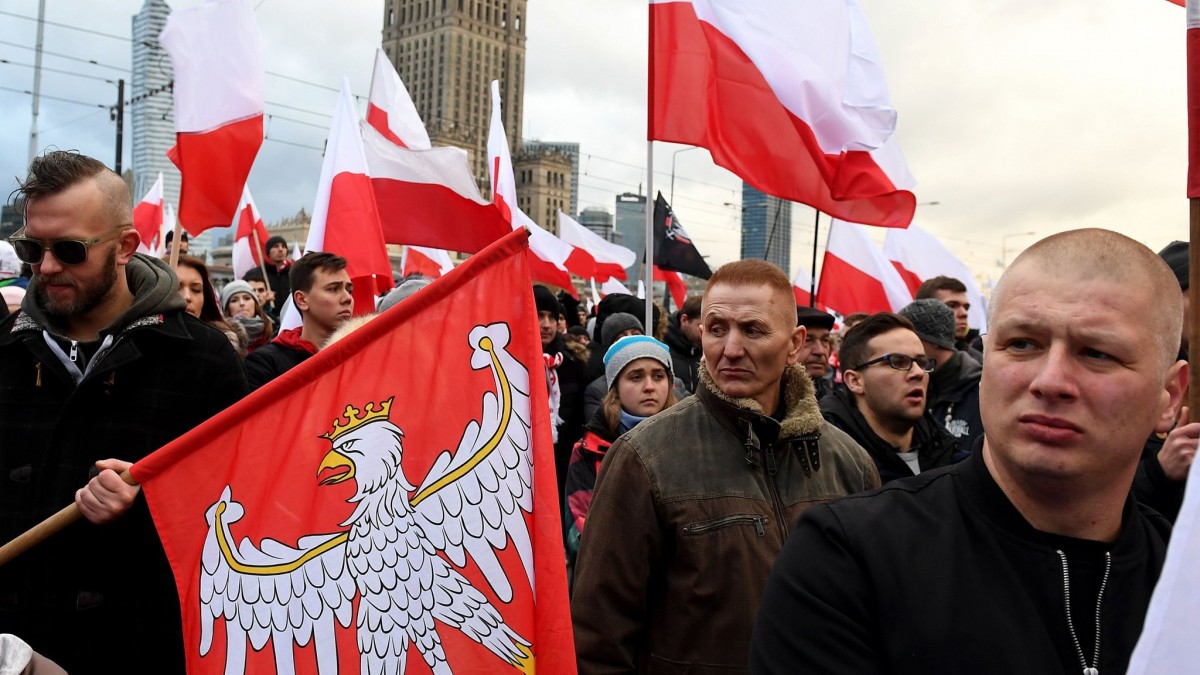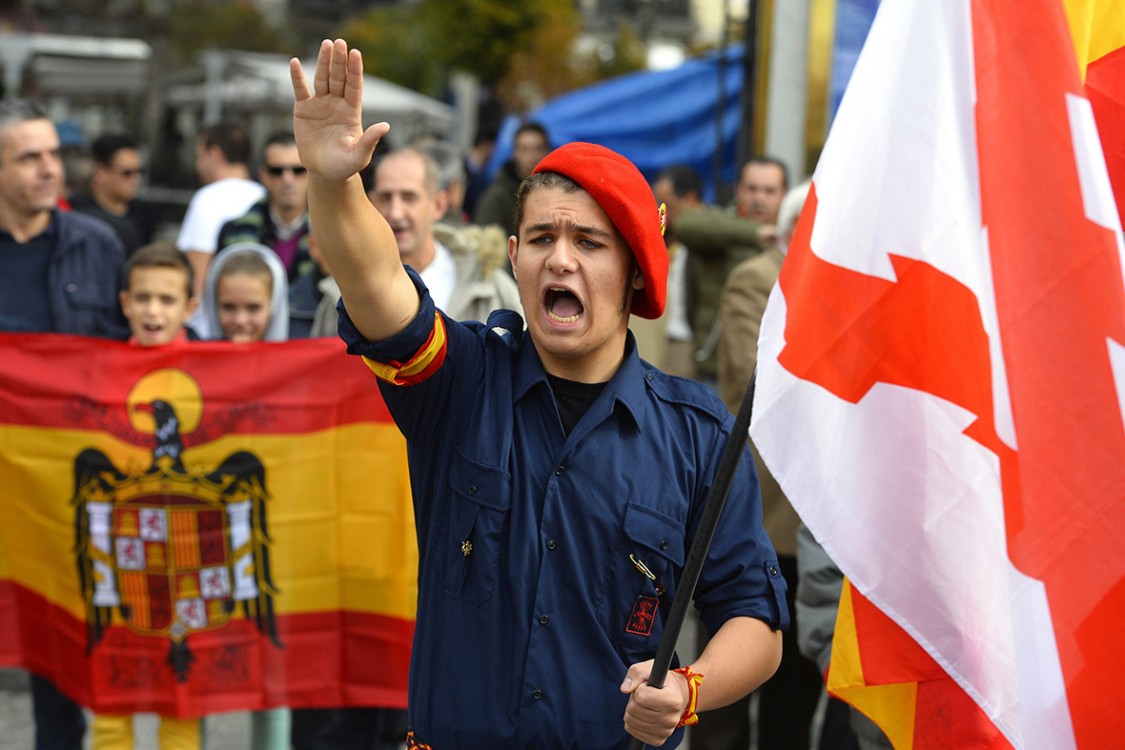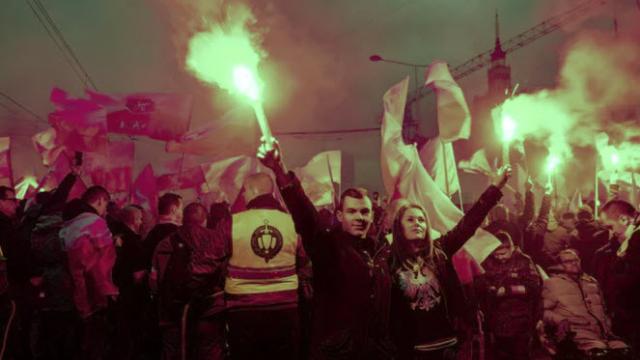
After Britain's Brexit, Poland could be next to exit the European Union. The country potentially faces sanctions – even expulsion – for its far right-wing lurch. On the streets recently, 60,000 marched under the racist call: “Pure Poland, White Poland.” The country clashes with the E.U. specifically with its attacks on judicial independence, breaking both European and Polish law. The nation may also leave on its own accord.
Fighting fascism is key across Europe, but a related, crucial crisis brews in the opposite corner of the continent: Spain's northeastern region of Catalonia. Here, more immediately, a crisis of austerity and authoritarianism poses a problem for democracy that could define Europe's direction.
E.U. Hypocrisy
Lawyers acting for the Catalan political prisoners being held by Spain have began proceedings at the United Nations opposing their arbitrary detention. But, as Occupy.com has reported, despite growing solidarity for the democratic Catalan independence movement, E.U. elites continue to view the crisis as an "internal matter." European Commission President Jean-Claude Juncker, for example, opposes Catalan independence because he says the split would make the whole E.U. community ungovernable.
This is arguably a double standard – twice. For one, it is questionable that the E.U. can stand up to protect human rights for one member but not another. Under international law, every citizen is entitled to self-determination. Within E.U. law, the right to vote and freely assemble are enshrined.
Second, the E.U. already intervened within Spain, effectively rewriting its Constitution when it suited the E.U.'s objectives. In 2011, austerity pressures from the E.U. forced Spain, through its very Constitution, to cap national deficits. Spain's two neoliberal parties facilitated the move, which showed just how willing the E.U. is to interfere in domestic matters when corporate interests are at stake.
Between forced austerity policies and the failure to protect human rights, there is a strong case to be made that Juncker and the E.U. leadership are in fact the ones compounding E.U. fragmentation.
From Economic to Democratic Crisis
The E.U. looks fragile. Economically, the systemic problems that caused the financial crisis remain unsolved. Instead, they are exacerbated by the states in the Union. For instance, Spain, like many countries, bailed out its failing private banks with public money, spending more than €50 billion in the process.
The lion's share was awarded to Bankia, a corporation that is under investigation for multiple corruption scandals. Bankia was run by Rodrigo Rato, a leading politician from Partido Popular, who later got sentenced to four years in jail for embezzlement.
Flip the austerity coin and Spain cut its public services drastically. Unemployment in the country remains over 16 percent; only 4 percent of jobs are considered not precarious. Meanwhile, the social crisis expands with four out of 10 children in poverty. On income inequality, Spain is seen as "one of the most divided countries in Europe."
Post-financial crash, these metrics echo across Europe and most of the West, if not as dramatically. Inequality was one of the key global drivers of the financial meltdown, and another financial nosedive will bring the house of cards down even harder. But by failing to solve the economic and inequality crises, Spain and other countries have also created another democratic crisis: fascism's rise.
How Financial Instability Fueled the Fascist Resurgence
For years, far-right parties have been rising in the polls, including in big nations like France and Germany. They now hold or share power in Austria, Poland, Finland and Hungary. In the U.S., too, a far-right demagogue sits in the Oval Office.
Since the 1930s, the link between poverty and the rise of the far-right has been well established and understood. As we have also reported, the corporate establishment often sponsors fascism as it favors the corporate elite. Today's context appears similar.
The lesson should be: pushing austerity and corporate welfare, for nation-state or the E.U. alike, attacks democracy by benefiting the 1% directly. And in the long run, the cuts in social welfare serve to embolden fascists.
Spain's Far-right Should Not be Ignored
Spain is in a unique position. Catalonia aside, it is in worse economic shape than when millions first occupied the squares in the 15M square movement of 2011. Adding to inequality and poverty, corruption is clearer each year.
Against this backdrop, on the national level the young left-wing party Podemos has dropped in the polls. While there is a far-right surge, it does not come from a new party – unlike in most of Europe. But this doesn't make it any less dangerous. In fact, Spain's opposition to Catalan independence has unmasked clear links to the country's Franco past. Spain's return to authoritarianism includes the violence carried out against Catalonian protesters and the treatment of political prisoners held without trial.
The democratic deficit goes further, with the 2015 Gag Law, or Ley Mordaza, as just one example. Outcomes include ending free speech, removing refugee rights, censoring journalism and attacking protester rights across Spain.
Britain after Scotland's independence campaign, and Spain amidst Catalonia's current one, make insightful reflections of one another. Independence offered a chance for the emerging smaller state to escape the larger, draconian one and rethink political relationships progressively. In turn, the rest of Britain also saw a right-wing authoritarian surge in the ruling party and in Brexit, which is being used as a vehicle to remove human rights. A similar reactionary result can be seen in Spain.
But there is a major difference between Spanish nationalism and the kind in Britain or much of the E.U.: The Nazis marching on the streets of Poland look similar to the Nazis on the streets calling for Spanish unity, but in Spain there is no breakthrough for any anti-European party. Authoritarianism is coming from the ruling PP.
Meanwhile, the party rising in Spanish polls is Ciudadanos (Citizens), a fresh-faced coalition that formed against Catalan independence. It is a repackaged neoliberal party without the old ties to Franco but with similar policies that favor the elites, like the low corporation tax, peppered with liberal social promises. It is the Spanish version of French leader Emmanuel Macron's La Republique En Marche.
Importantly, Ciudadanos is not critical of Spain's bailout of the banks. As Ciudadanos' economic advisor said: “If you don’t restructure the financial system, as Spain and Ireland did after the crisis, it is very difficult to have a real recovery.”
At its root, Ciudadanos represents another danger to democracy in Europe. For all its social promises, it favors the financial status-quo that has already steamrollered European societies with austerity and threatens to drag the continent further to the right by continuing with crisis-business as usual. The party also fully backed Article 155, the official attack on Catalan democracy. In short, Ciudadanos offers no alternative to worsening inequality and increasing authoritarianism, despite the glossy sheen it presents as newcomers.
Continuing with the Scotland-England comparison after Indyref, something else happened to the rest of the United Kingdom in the wake of Scotland's vote. The country polarized, partially towards a xenophobic Brexit, the other part towards a real progressive alternative in Corbyn's Labour Party.
Next week, Occupy.com will follow up to explore how the surge in Spanish right-wing authoritarianism can be stopped and be replaced with a more hopeful future.
3 WAYS TO SHOW YOUR SUPPORT
- Log in to post comments

